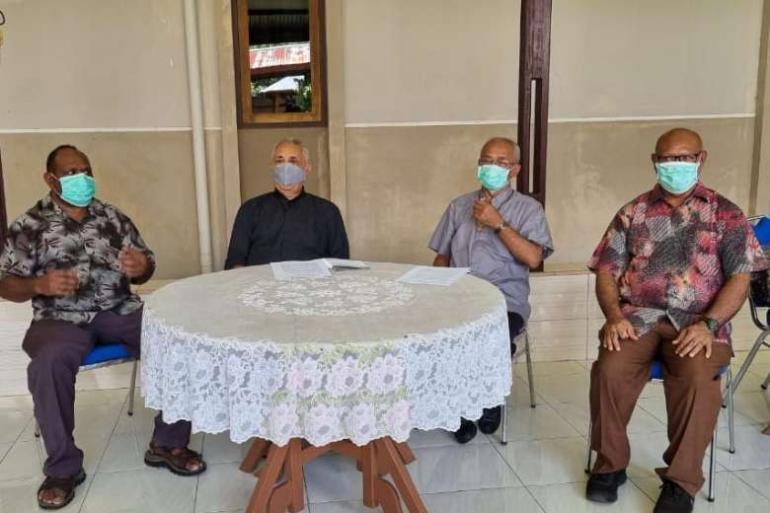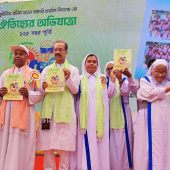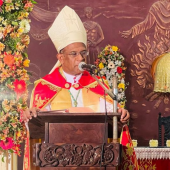Papuan Catholic leaders call for peace amid tensions

Catholic leaders in Papua province have called for an end to the ongoing conflict between the military and pro-independence groups.
The call came after priests and laypeople recently criticized bishops and the Indonesian Bishops' Conference for turning a blind eye to the conflict in the easternmost region.
The Feb. 25 appeal mentioned the incident in Intan Jaya and Puncak district in which a soldier, a man accused of being a military spy and three civilians were killed, forcing thousands forced to flee in the last week.
"Whoever is the victim, the humanitarian violence itself makes us sad and angry. Whoever the perpetrators, be they the police, the military or pro-independence groups, [the violence] cannot be justified, even if it is done for reasons that are noble in their view,” they said, adding that "truth and justice can be fought for and must be upheld.”
“But violent struggle will never succeed. Violence will give birth to violence again and so continue. Therefore we urge all parties to stop the violence,” they said.
The appeal was signed by Bishop Leo Laba Ladjar of Jayapura, Bishop Aloysius Murwito of Agats, Father Marthen Kuayo, apostolic administrator of Timika Diocese, and Father Hengky Kariwop, vicar general of Merauke Archdiocese.
They also pointed out that the location and function of the security forces should be reorganized in a professional and proportional manner.
"Approach with heart and love — that is the slogan that has often been echoed. We hope that this slogan can become real in the behavior of the security forces,” they said, adding that officers stationed in Papua need to be equipped with knowledge of the local community, culture and customs.
They also asked that some new district leaders inaugurated this week pay serious attention to various aspects of life, including education and health as well as protection of indigenous people amid the expansion of palm oil plantations.
Catholic activist Melvin Waine said the bishops' statement is "an answer to the longing of Papuans for their pastor."
"That is what they should do. They must be sensitive to the problems that the congregation is experiencing and have the courage to speak up,” he told UCA News.
Waine is the coordinator of lay Catholics who last month declared that they have lost trust in Papua's bishops and the bishops' conference.
However, he said, the bishops still had homework to do, especially in relation to their statements about indigenous people.
"If they are consistent, they must jointly encourage Merauke Archdiocese to revoke the MoU [memorandum of understanding] with the palm oil company," said Waine, referring to the cooperation agreement signed by Merauke Archbishop Petrus Canisius Mandagi with a controversial palm oil company, PT Tunas Sawa Erma, part of the Korindo Group, where the archdiocese received millions of dollars.
Since the end of January, Waine and his colleagues have organized activists who conduct fundraising every Sunday in front of several churches in Papua, asking people to contribute funds to be given to Archbishop Mandagi so that the MoU can be canceled.
He said they were still struggling to raise funds, which until now had reached 3 million rupiah (US$213).
Meanwhile, Siprianus Bunai, another layman, said church leaders in Indonesia must speak out more often, not only when there is criticism. "The Church must stand on truth and human values," he said. - UCA News
Radio Veritas Asia (RVA), a media platform of the Catholic Church, aims to share Christ. RVA started in 1969 as a continental Catholic radio station to serve Asian countries in their respective local language, thus earning the tag “the Voice of Asian Christianity.” Responding to the emerging context, RVA embraced media platforms to connect with the global Asian audience via its 21 language websites and various social media platforms.














